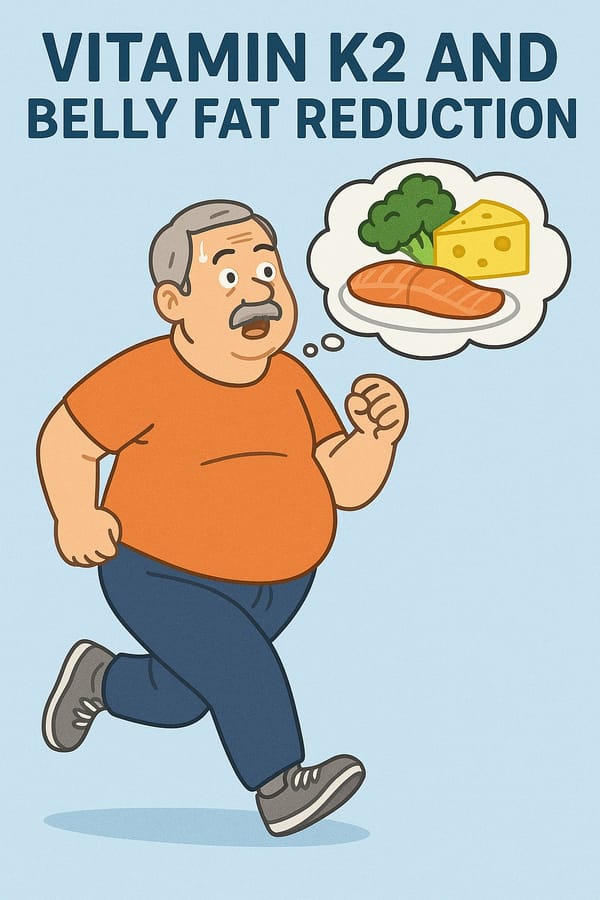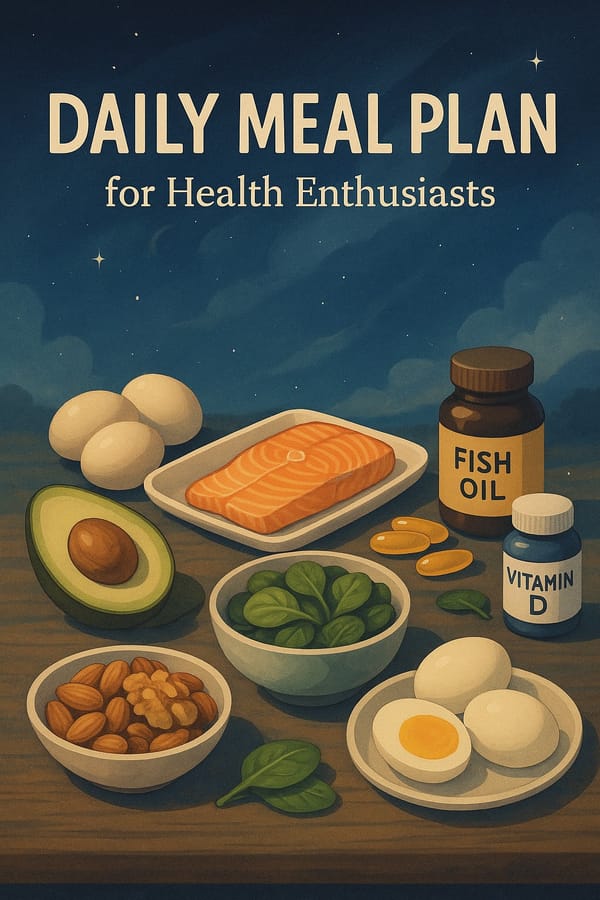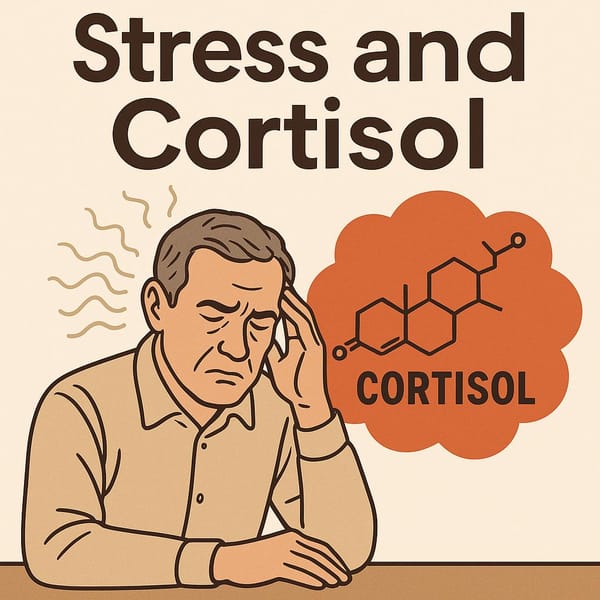The Happiness Neurotransmitters and How Natural Methods Can Boost Them
Dive into the fascinating world of ‘happiness neurotransmitters’—dopamine, serotonin, oxytocin, and endorphins—and discover natural ways to maintain a healthy balance for well-being after 50. Learn how diet, exercise, and stress management can boost your mental and physical health.

Introduction
When we talk about “happiness,” many people may think of possessions, objects, or experiences that make us smile or laugh. However, another equally important factor that profoundly influences our happiness is “neurotransmitters”—often referred to as “happy hormones.” These are chemical messengers in the brain responsible for regulating mood, feelings, and mental balance. This becomes especially crucial for individuals over 50, whose physical and mental health may begin to change. Understanding the mechanisms of these neurotransmitters helps explain why we feel good or not at times, and also offers a roadmap to maintaining both mental and physical well-being in the long run.
In this article, we will explore ways to care for and enhance these happiness neurotransmitters through natural approaches—covering diet, exercise, mental self-care, and various activities that promote optimal functioning of these chemicals. We will reference scientific studies and reliable evidence to ensure the recommended approaches are safe and practicable.
What Are Happiness Neurotransmitters?
Neurotransmitters are chemical messengers produced by neurons (nerve cells) in the brain and nervous system. They are released to send signals between cells. While there are numerous types of neurotransmitters, those that are specifically associated with “happiness” or “feel-good” states are often collectively referred to as happy hormones. The main ones include:
- Dopamine: Linked to pleasure, motivation, and reward. When dopamine levels are high, we feel energized and driven.
- Serotonin: Associated with mood stability and calmness. Balanced serotonin levels help maintain a stable mood.
- Oxytocin: Known as the “love hormone,” related to bonding, trust, and a sense of security. Physical touch like hugging can stimulate oxytocin release.
- Endorphins: The body’s natural painkillers, which also give a sense of well-being and relief.
Why Are They Important?
These neurotransmitters do more than just make us feel good; they are vital for various bodily processes, including stress management, sleep regulation, digestion, and immune function. When these neurotransmitters become imbalanced—either too high or too low—it can affect both mental and physical health in many ways:
- Low dopamine can lead to lack of motivation or even depression.
- Insufficient serotonin may cause mood swings or poor sleep.
- Low oxytocin can result in feelings of isolation or relationship issues.
- Decreased endorphins can contribute to chronic pain or low morale.
Maintaining adequate levels of these neurotransmitters is key to supporting both mental and physical well-being. This is particularly important for people over 50, whose hormone and neurotransmitter levels naturally shift with age. Early and consistent care can ensure a better quality of life.
How Do Happiness Neurotransmitters Work?
Neurotransmitters are synthesized in nerve cells and stored in tiny sacs (vesicles) at the neuron’s terminal. When an electrical signal travels along the neuron to the terminal, these vesicles release their neurotransmitters into the synaptic gap, allowing the chemicals to bind to receptors on adjacent neurons, continuing the signal.
For instance, when we perform rewarding or enjoyable activities—like exercising, eating a favorite meal, or receiving praise—the brain signals the release of various neurotransmitters. This results in a pleasant, rewarding feeling, reinforcing a positive feedback loop that benefits overall mental health.
1. Dopamine: The Motivation Hormone
Role and Importance
Dopamine is a neurotransmitter closely tied to feelings of pleasure, motivation, and achievement. Activities like starting a new job, committing to a fitness plan, or learning a new skill can trigger the release of dopamine, encouraging us to keep going and offering a sense of reward once we succeed.
Natural Ways to Boost Dopamine
- Protein-Rich Foods: Fish, eggs, tofu, and lean meat contain the amino acid tyrosine, a precursor to dopamine.
- Setting Small, Achievable Goals: Completing small tasks triggers dopamine release, building motivation for larger goals.
- Regular Exercise: Activities like running, swimming, or cycling consistently stimulate dopamine production.
- Adequate Sleep: Proper rest helps regulate all hormones, including dopamine.
2. Serotonin: The Hormone of Calm and Contentment
Role and Importance
Serotonin is associated with emotional well-being, mental stability, and sleep regulation. Balanced serotonin levels help maintain a steady mood and better sleep quality. Conversely, low serotonin levels can lead to mood swings or even depression.
Natural Ways to Boost Serotonin
- Foods High in Tryptophan: Examples include beans, seeds, bananas, avocados, salmon, eggs, and lean meats. Tryptophan is a direct precursor to serotonin.
- Natural Sunlight: Exposure to morning or late-afternoon sun helps the body regulate its circadian rhythm and supports serotonin production.
- Meditation or Yoga: Helps lower cortisol (the stress hormone) and supports stable serotonin levels.
- Manage Chronic Stress: Engage in relaxing activities like listening to music, creating art, or taking a walk in nature.
3. Oxytocin: The Hormone of Love and Bonding
Role and Importance
Oxytocin influences bonding, trust, and a sense of security. Physical touch—like hugging or other forms of gentle contact—can notably increase oxytocin levels.
Natural Ways to Boost Oxytocin
- Physical Touch: Hugs or gentle contact with family, friends, or pets stimulate oxytocin release.
- Social Interactions: Joining group activities, volunteering, or simply spending quality time with friends and family.
- Building Emotional Connections: Cooking together, sharing stories, or engaging in collaborative projects strengthens bonds.
- Pet Ownership: Playing or cuddling with pets can naturally raise oxytocin levels.
4. Endorphins: The Body’s Natural Painkillers
Role and Importance
Endorphins act like the body’s natural morphine. They reduce pain and induce a feeling of relaxation. Physical activities or even laughing and crying vigorously can trigger endorphin release.
Natural Ways to Boost Endorphins
- Consistent Exercise: Running or brisk walking for at least 30 minutes a day can significantly raise endorphin levels.
- Laughter: Watching comedies or listening to jokes is a fun way to stimulate endorphin release.
- Music and Art: Engaging with music or art can calm the mind and enhance endorphin production.
- Massage Therapy: Helps relieve stress and increase endorphins.
Research and Scientific Evidence
- Studies from Harvard Health show that exercise and proper nutrition significantly improve serotonin and dopamine levels, especially in individuals experiencing stress or depression.
- The World Health Organization (WHO) notes that physical touch has a positive impact on the mental well-being of older adults, partly due to increased oxytocin.
- Multiple clinical studies highlight that insufficient sleep disrupts various neurotransmitter levels. Neuroscientists recommend at least 7-9 hours of sleep daily to maintain hormonal balance.
How to Care for Your Happiness Neurotransmitters Naturally
1. Balanced Nutrition
- Adequate Protein: Eggs, fish, lean meats, tofu, and various beans.
- Colorful Fruits and Vegetables: Provide essential vitamins and minerals like B vitamins, vitamin C, vitamin D, and magnesium.
- Limit High-Sugar Foods: Sugar spikes may offer quick energy but can lead to fluctuating energy and mood levels.
- Stay Hydrated: Dehydration can fatigue the brain and affect neurotransmitter production.
2. Regular Exercise and Physical Activities
- Light Cardio for Older Adults: Activities like brisk walking, swimming, or cycling promote heart health and endorphin release.
- Yoga or Pilates: Improve flexibility, focus, and stress reduction.
- Engage in Favorite Sports: Choose activities suited to your physical capabilities (e.g., golf, table tennis, tennis) for greater enjoyment.
3. Adequate Rest and Stress Management
- Quality Sleep: Aim for 7-9 hours of sleep each night.
- Meditation: 10-15 minutes daily to reduce stress hormones and enhance mental clarity.
- Time Management: Plan tasks efficiently so you have downtime for relaxation or hobbies.
4. Social Well-Being and Relationship Building
- Interact with Family and Friends: Sharing conversations and activities helps boost oxytocin.
- Join Community Groups or Clubs: E.g., cooking, music, or Tai Chi clubs, to expand social circles and mutual support.
- Volunteer Work: Helping others fosters a sense of purpose and often triggers a positive hormonal response.
5. Mindful Use of Supplements
- B-Complex Vitamins: Aid in the synthesis of dopamine and serotonin.
- Omega-3 Fatty Acids: Extensively studied for cognitive and heart health benefits.
- Magnesium: Helps manage stress and improves sleep quality.
- Probiotics: A healthy gut microbiome is tied to balanced neurotransmitter production via the gut-brain axis.
Always consult a doctor or specialist before starting any supplement to avoid potential side effects or drug interactions.
Precautions
- Be Wary of Overblown Claims: Some supplements or products may claim to “cure everything,” but scientific backing is necessary.
- Serious Mental Health Issues: Seek professional medical advice if you experience severe depression, anxiety, or other mental health problems.
- Monitor Side Effects: Not all lifestyle changes or supplements suit everyone; adjust accordingly.
Conclusion
Understanding and nurturing these “happiness neurotransmitters” is crucial for overall health at any age—especially for those entering their 50s and beyond, as the body’s hormonal and neurotransmitter levels naturally shift. Simple lifestyle adjustments, such as choosing the right foods, exercising regularly, getting sufficient rest, engaging in social activities, and managing stress, can help maintain both physical and mental vitality in the long term.
Finally, if you’d like to explore more about “Food for Holistic Health,” feel free to check out other articles on our website (internal link) for additional insights. To dive deeper into scientific resources, refer to credible organizations like the WHO or Harvard Health. They provide extensive research on health and neurotransmitters, helping you make informed decisions about your well-being.
Bullet Points: Key Takeaways
- Main happiness neurotransmitters include dopamine, serotonin, oxytocin, and endorphins.
- Factors influencing these neurotransmitters: balanced nutrition, regular exercise, quality rest, and social activities.
- Certain vitamins and minerals—B vitamins, omega-3, magnesium—support brain and nervous system health.
- Stress management, sufficient sleep, and meditation help maintain hormonal and neurotransmitter balance.
- Be cautious about exaggerated product claims, and always seek professional advice if serious symptoms arise.



